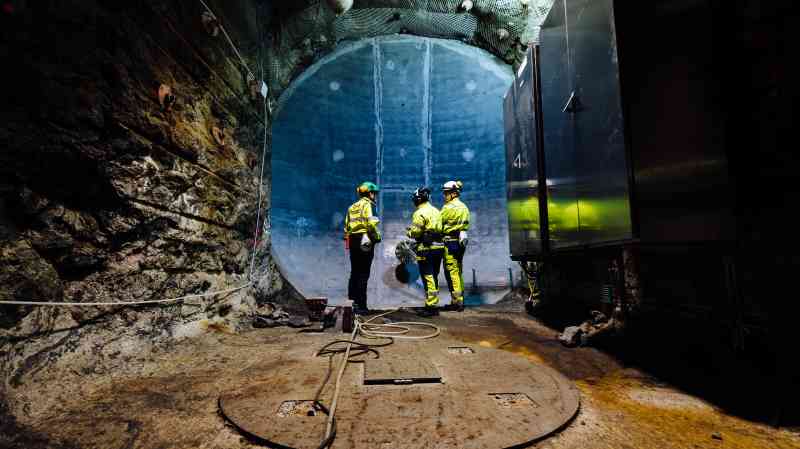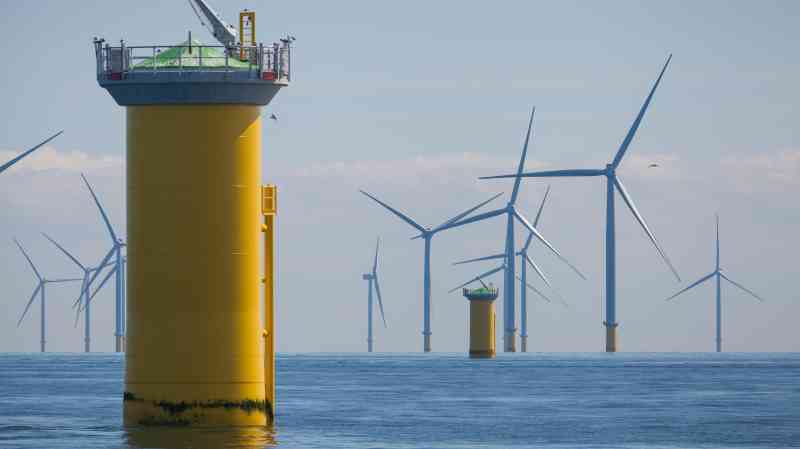Raspberry Pi plans £500m float in London
Raspberry Pi, the Cambridge maker of small and affordable computers, has announced plans to float on the London Stock Exchange in a boost to the City and the UK’s tech sector.
The microcomputer company which aims to “democratise technology for companies large and small, to the kitchen table tinkerer, to the classroom coder” has not revealed how much it planned to raise, but at its last investment round, it was valued at just over £440 million.
Dr Eben Upton, 46, its co-founder and chief executive, had planned to list the business in 2021, but pulled back because of unfavourable stock market conditions, and a hit to sales from the global shortage of semiconductors. It has appointed Jefferies and Peel Hunt as its bankers for its second attempt to go public.
The registration document published on Wednesday has given investors a more detailed look under the bonnet of the business. For the year ended December 31, 2023, it reported sales of $265.8 million, a profit before tax of $38.2 million and employed 103 people, half of whom were engineers.
Looking ahead at potential risks, the company said shortages of components, including semiconductors, could continue to be a headwind, along with geopolitical instability, difficulty recruiting and fraudsters trying to sell fake versions of their products.
In terms of opportunities, it plans to bring the design of semiconductors in-house and increase its geographical footprint, upping sales in its biggest markets of the United States, Germany, the UK, and India, with a particular focus on China and expansion in sub-Saharan Africa.
Upton added: “In an ever more connected world, the market for Raspberry Pi’s high-performance, low-cost computing platforms continues to expand. We have the technology roadmap to play an increasingly significant role, and we are excited to embark on the next stage of our growth”.
Raspberry Pi was founded when, struggling to get anyone to study computer science in Cambridge in 2008, Upton, then a director of studies, decided to do something about it. Drawing on the success of the BBC Micro and ZX Spectrum home computers, the Raspberry Pi Foundation, an educational charity, was born as a way to get children interested in computing.
Four years later, it had created a cheap, credit-card sized computer, as Upton put it, “affordable enough for young people to own and explore with confidence, giving them the chance to discover computing and get excited about it”.
The company, co-founded with his wife, Liz, has funded the Foundation to the tune of $50 million to date, while the charity owns a 73 per cent majority of the business and will continue to be a shareholder after the float.
It sells directly to customers and under a licensing model, most Raspberry Pi devices are in Wales, and are distributed by Premier Farnell.
The fifth incarnation of its computer, Raspberry Pi 5, costs about £59 for a 4GB board and £79 for 8GB. When hooked up to a monitor, keyboard and mouse, the device operates like a normal computer, but with coding programs easily accessible. It also has a store in central Cambridge and a publishing arm which produces magazines and books.
The business became increasingly focused on commercial use and over 70 per cent of its sales are now to the industrial electronics market with 1,300 companies using Raspberry Pi products within their own systems, such as security cameras, ventilation systems and self-pour coffee machines.
It has garnered investment from some major names whose technology goes into its computers in recent years including $10 million from Sony for a 1.7 per cent stake, and $20 million from Arm, the giant semiconductor architect for a 3.4 per cent stake. Upton owns 2.2 per cent of the business.
The Foundation’s board includes Tim Peake, the astronaut, Ian Livingstone, the computer games veteran who founded Games Workshop, and Sherry Coutu, the entrepreneur and investor.
Professor Sir Richard Friend, a fellow of the Royal Academy of Engineering said: “Companies like Raspberry Pi epitomise the value that the engineering community brings to the UK and their decision to list here is very important for our tech community. Raspberry Pi is a fantastic example of the sort of world-leading engineering innovation of which the UK is capable of creating and scaling. However, we should ask ourselves, do we currently have the right national policies and skills in place to support vital engineering and technology advances going forward?”




Post Comment